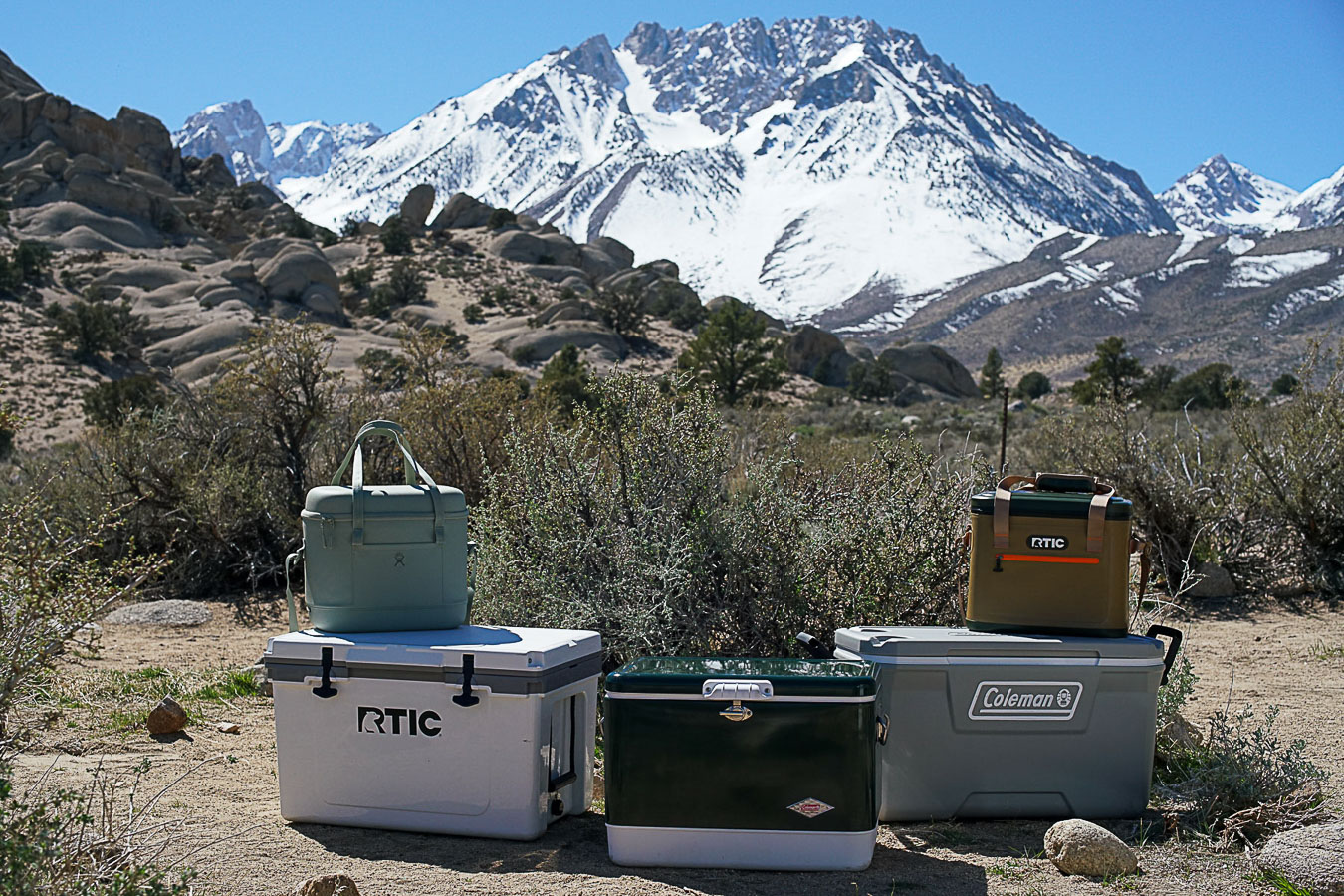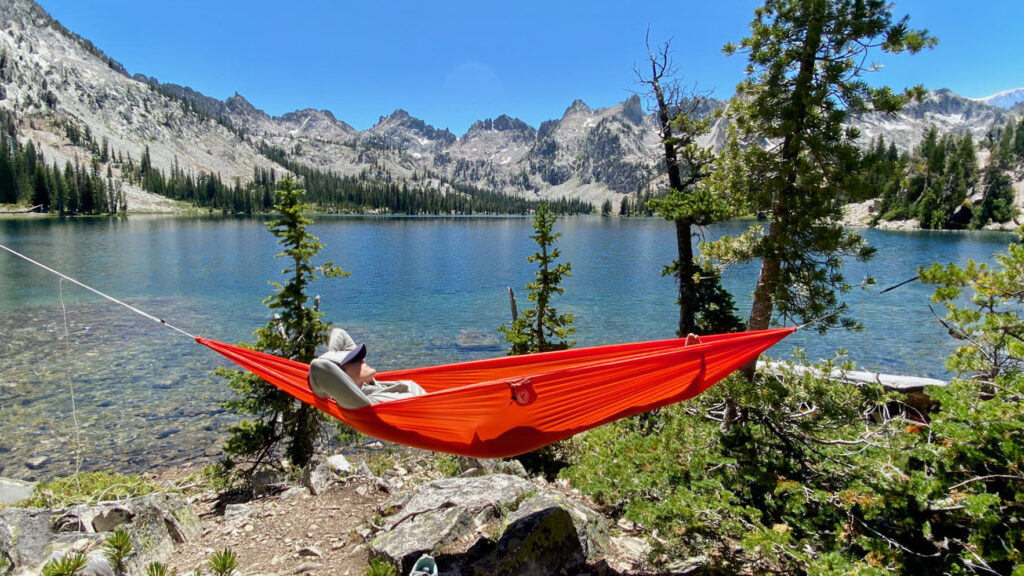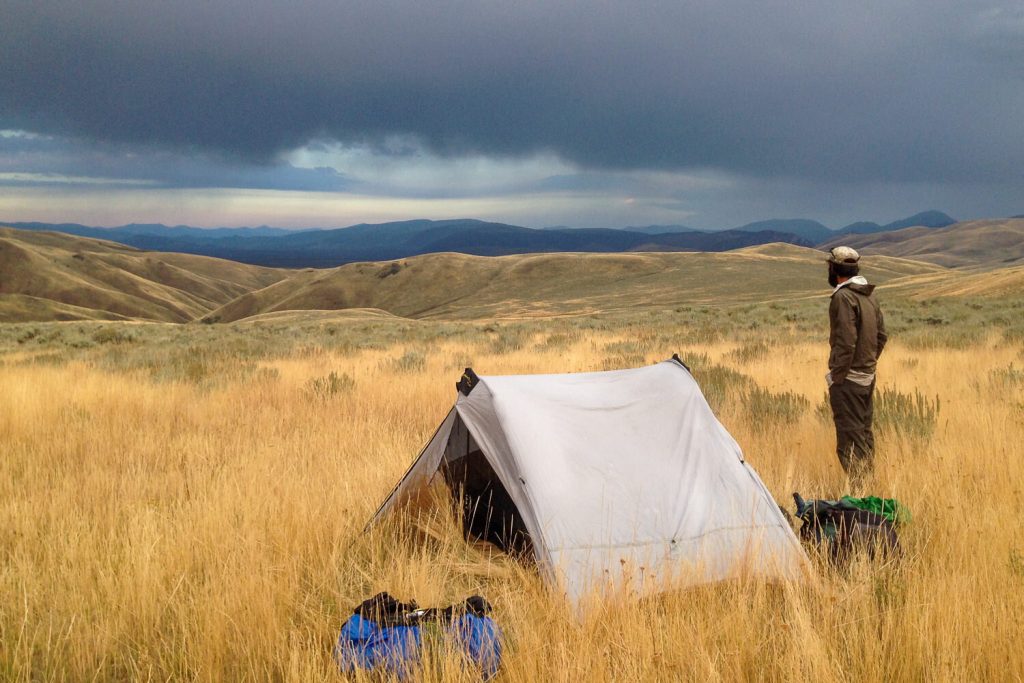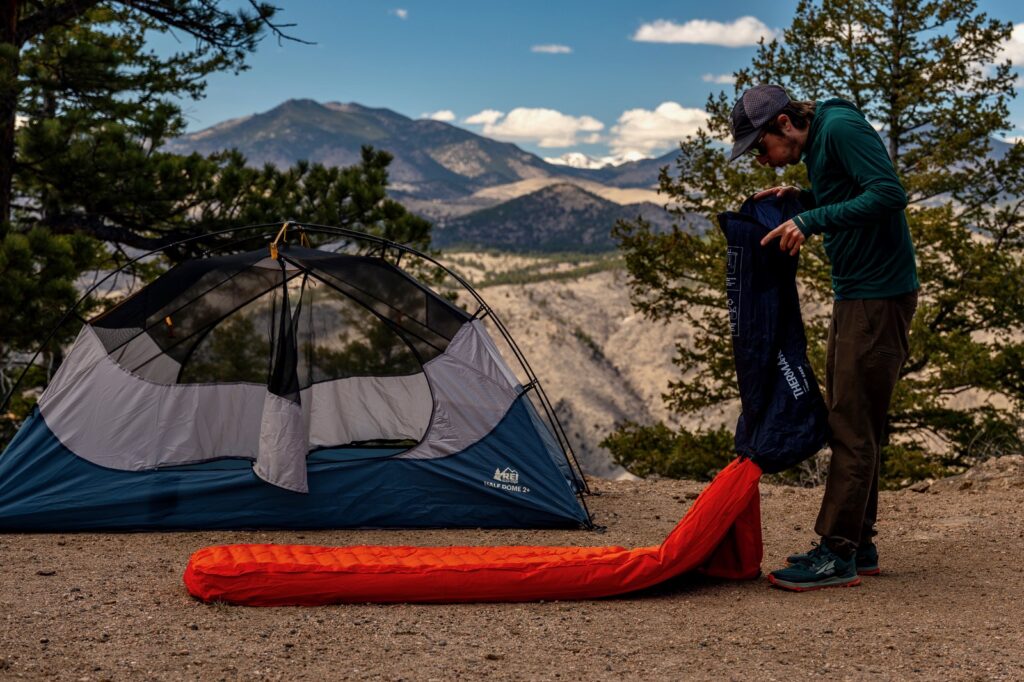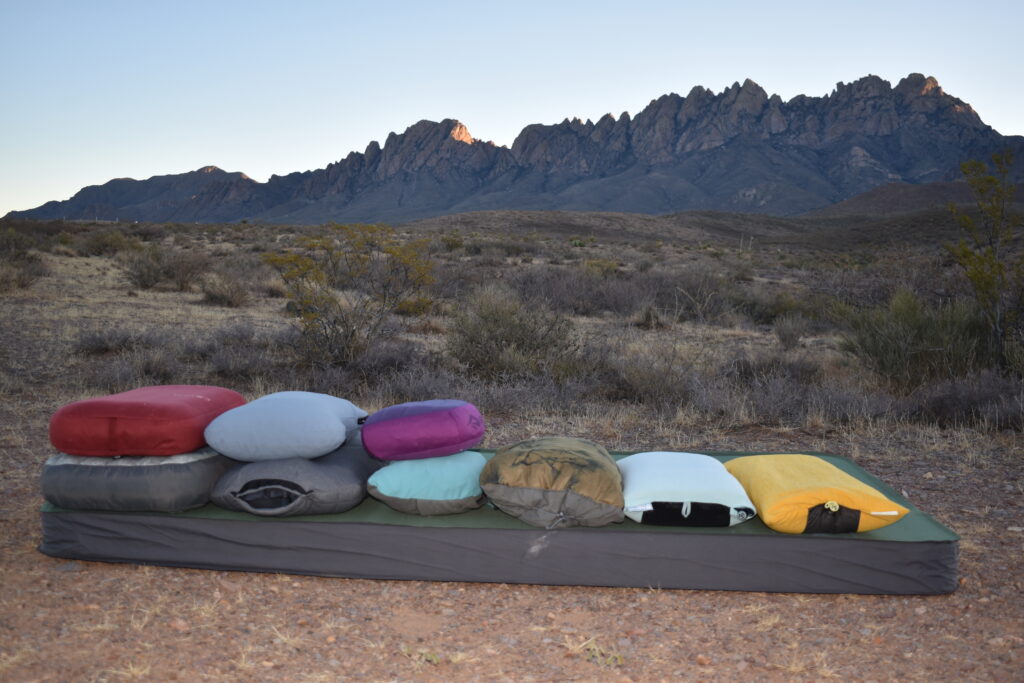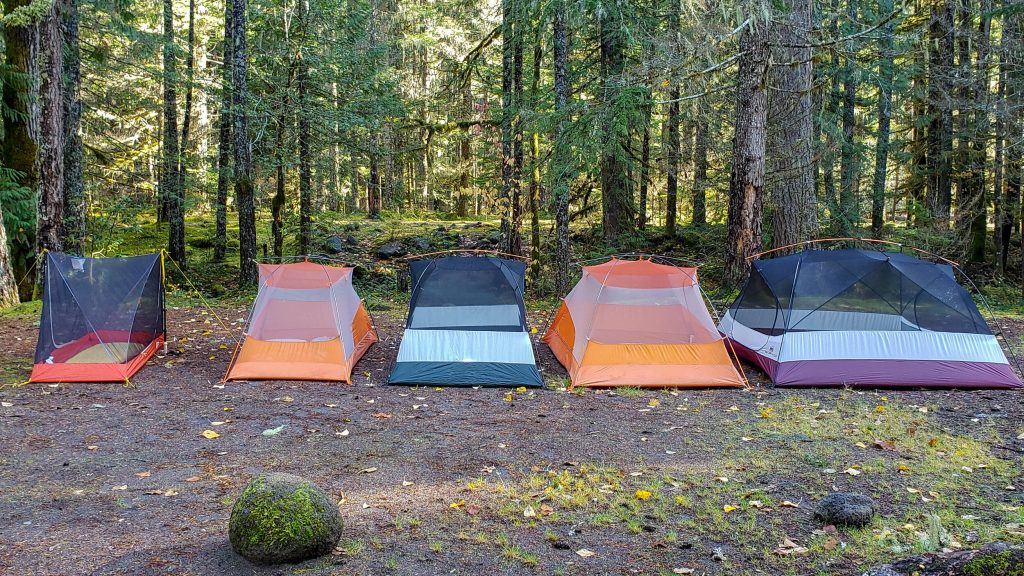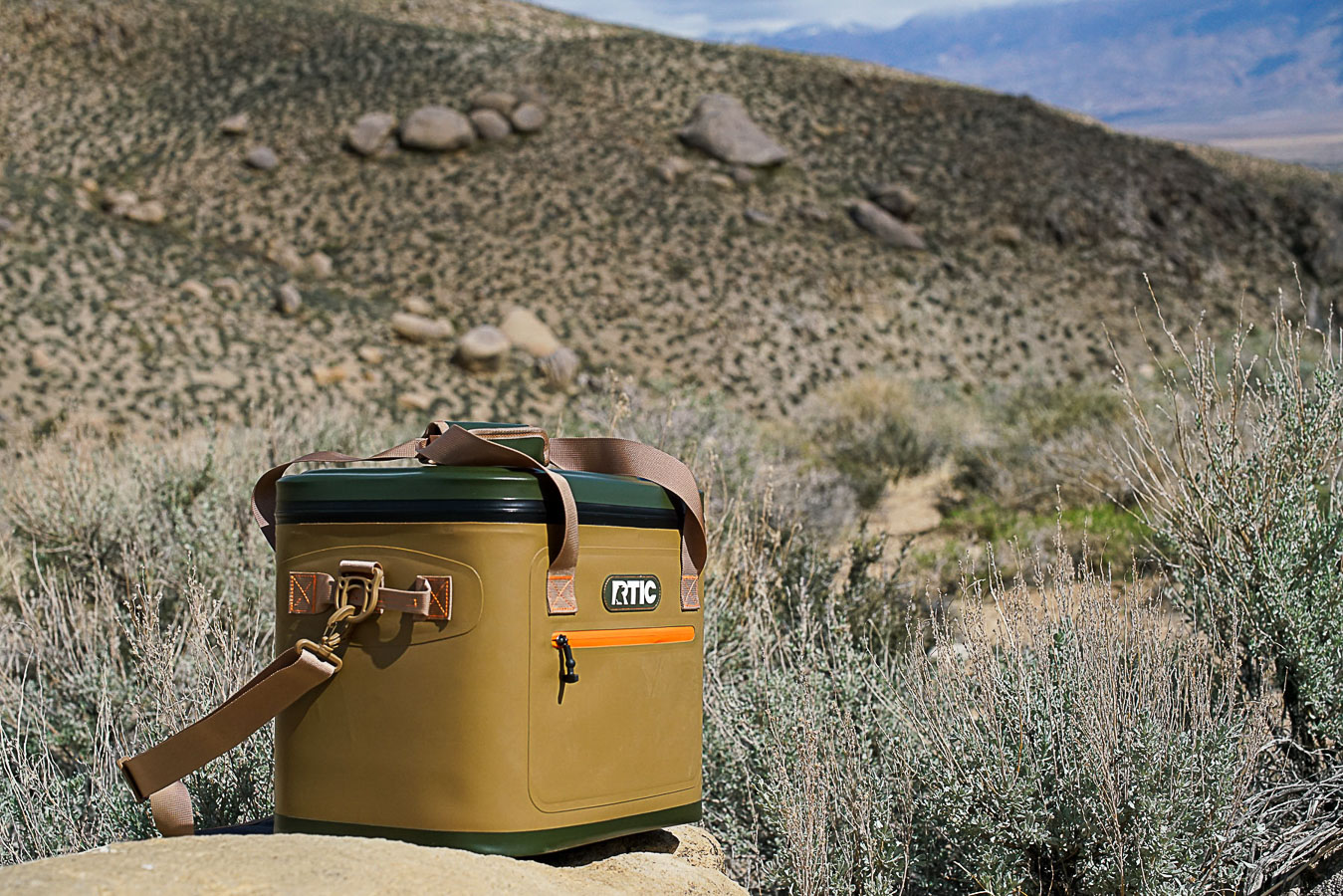
Bottom Line
Whether you’re spending a day on the water or going for an afternoon picnic, the RTIC Soft Pack cooler remains lightweight and portable, while offering a durable and waterproof design with excellent temperature control. Built to handle all your adventures, its rugged construction made with quality materials is designed to endure tough environments.
Soft shell coolers are generally seen as less heavy-duty than their hard shell counterparts, but the RTIC features a sturdy frame and a robust coated exterior along with a tough interior lining that resist tears and punctures. During testing in California’s Sierra Nevada high desert landscape, we subjected the RTIC to a variety of conditions, from marshy riversides to rocky foothill trails, to evaluate its durability.
What makes the Soft Pack stand out is its ability to float, making it our top choice for everything from fishing to float trips. A waterproof zipper creates an effective seal against water and leaks, and also helps with cold retention. Our main complaint is that the stiff zipper can be tricky to unzip, but the tight seal is a worthwhile tradeoff.
The RTIC keeps cold temperatures for multiple days while offering ample storage for an all-day outing or weekend trip essentials. Thanks to its buoyancy, rugged durability, and excellent cold retention, the RTIC Soft Pack is a portable choice that can hold all your outdoor gear—whether on land or water. See how it compares to our other picks in our complete guide to the best coolers.
How We Tested
We conducted our latest cooler test in California’s Eastern Sierra, where sunny spring days and warm temperatures allowed us to thoroughly evaluate ice retention and temperature control. We monitored ice melt and measured internal temperatures in various settings, including hot vehicles in parking lots and high-elevation bouldering days in the Buttermilks. We also assessed durability, portability, and ease of use across diverse terrains, from rocky high desert to marshy riverside.
Quick Specs
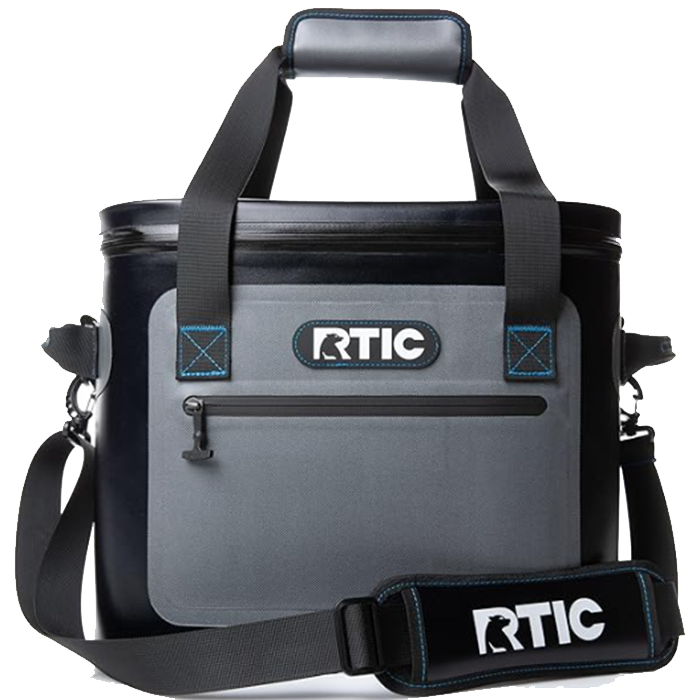
RTIC Soft Pack Cooler
Best Waterproof Soft Cooler
CleverHiker Rating: 4.1/5.0
Price: $130
Empty Weight: 4 lb.
Volume: 14 qt. (30 can)
Sizes: Available in 12, 20, 30, and 40 can size options
Pros
- Durable design
- Waterproof
- Floats
- Portable
Cons
- Zipper is somewhat hard to use
- Thickness of insulation loses some interior capacity
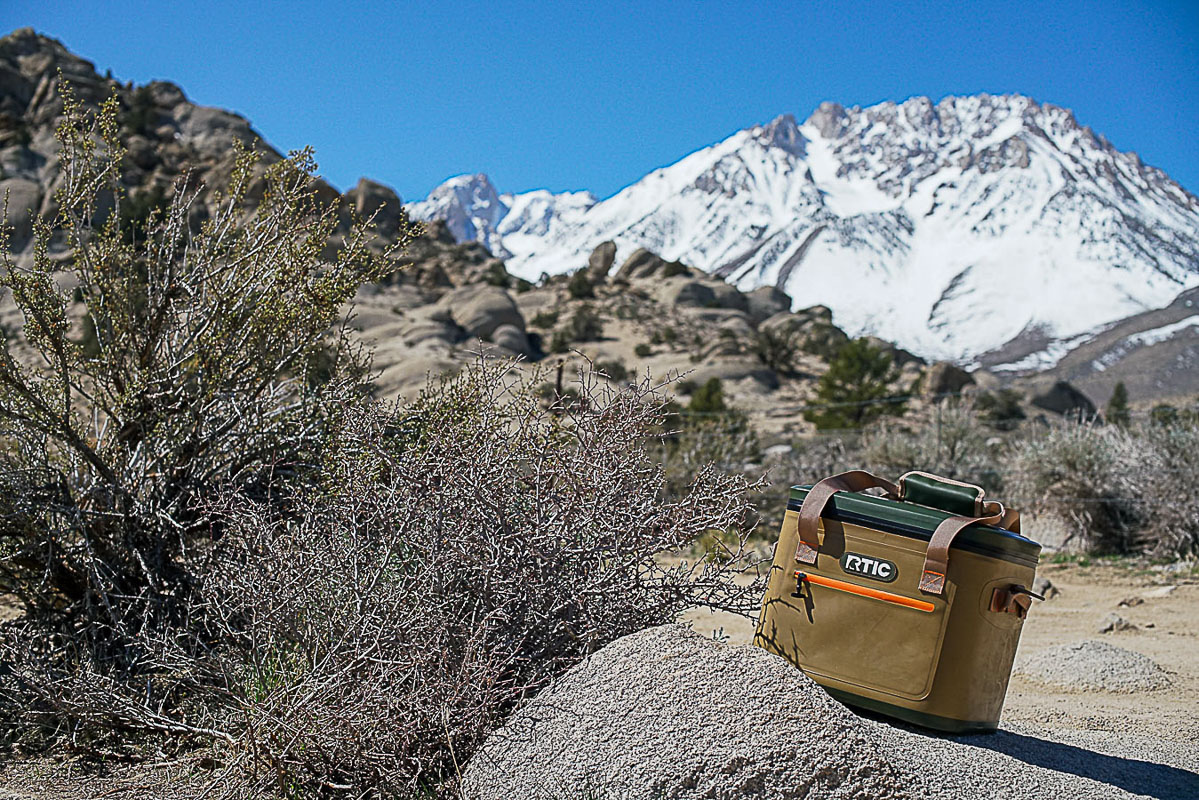
Insulation
A 1.5-inch-thick layer of closed-cell foam insulation lines the inside of the RTIC Soft Pack. The closed-cell structure of the foam prevents air from passing through, providing more reliable insulation for the items inside the cooler. Although it doesn’t offer the long-lasting insulating ability of hard-shell coolers, testing the RTIC in the California high desert showed it took four days for the ice to fully melt. After five days, the cooler’s internal temperature reached between 40 and 50 degrees Fahrenheit.
The smaller size of the Soft Pack makes it less suitable for extended trips, but its ability to keep items cold for days makes it useful for day trips and long weekends when you have a smaller quantity of perishable goods. Of the soft shell coolers we reviewed, the RTIC performed very well in temperature control. Its effective insulation makes it one of the most reliable options for cold storage.
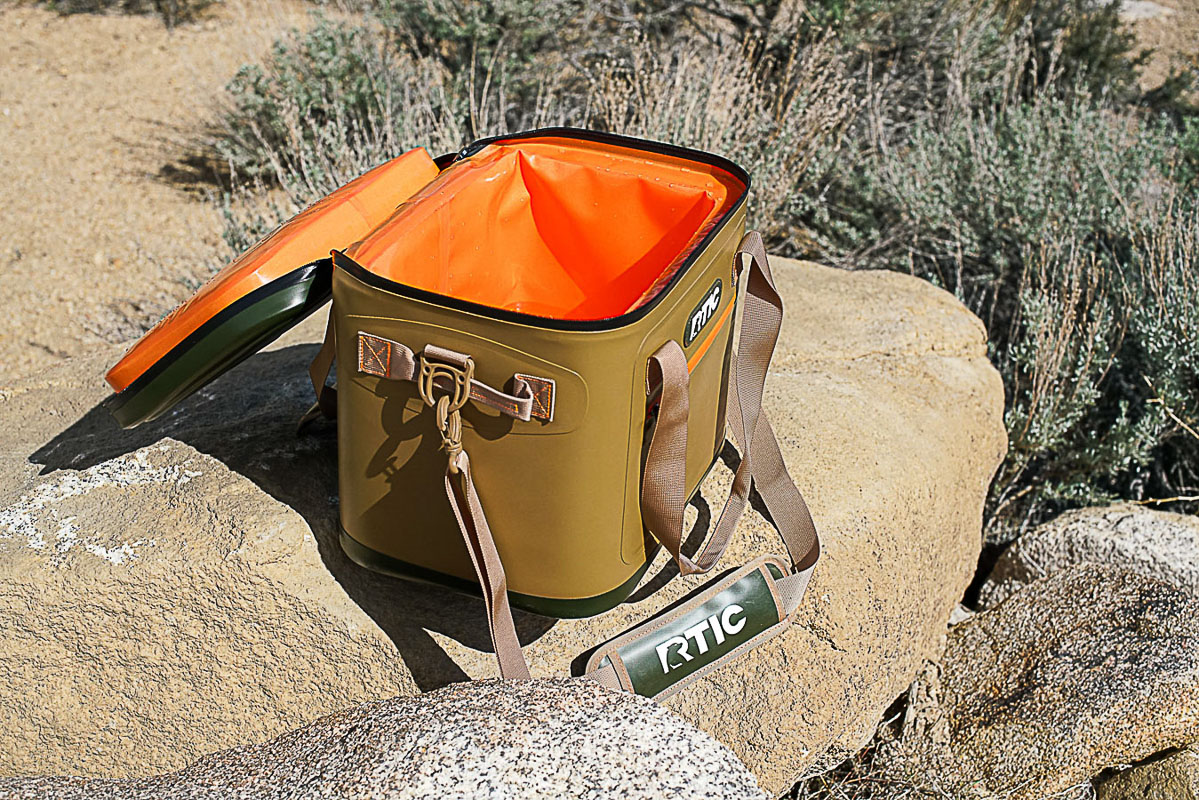
Durability
Despite being a soft-shell cooler, the RTIC Soft Pack has a durability that’s well suited for outdoor use. We dragged and dropped the cooler onto concrete, rocks, and rugged desert trails, and the tough exterior of the cooler showed no signs of damage.
The exterior shell is completely waterproof, as is the heavy-duty zipper that keeps the cooler’s lid shut. Welded seams attaching handles and the accessory pocket to the cooler help keep water out and improve cold retention. The interior lining is just as durable, resistant to scratches and punctures, and can be easily rinsed and cleaned.
Since our testing was limited to a two-month period, we did not personally experience this issue, but we found multiple reviews complaining about the RTIC’s welded seams falling apart after a year of use. Glue is more vulnerable to wear and tear and fluctuating temperatures, so we can expect potential problems with the longevity of the welded seams over time, especially when used in hot conditions.
The durable design of the RTIC Soft Pack and the toughness of its materials make the cooler suitable for the unpredictable outdoor conditions. It’s just as capable of handling a dip in the river as it is of surviving an accidental fall down a rocky trail, confirming its reputation as a reliable cooler even in the harshest environments.
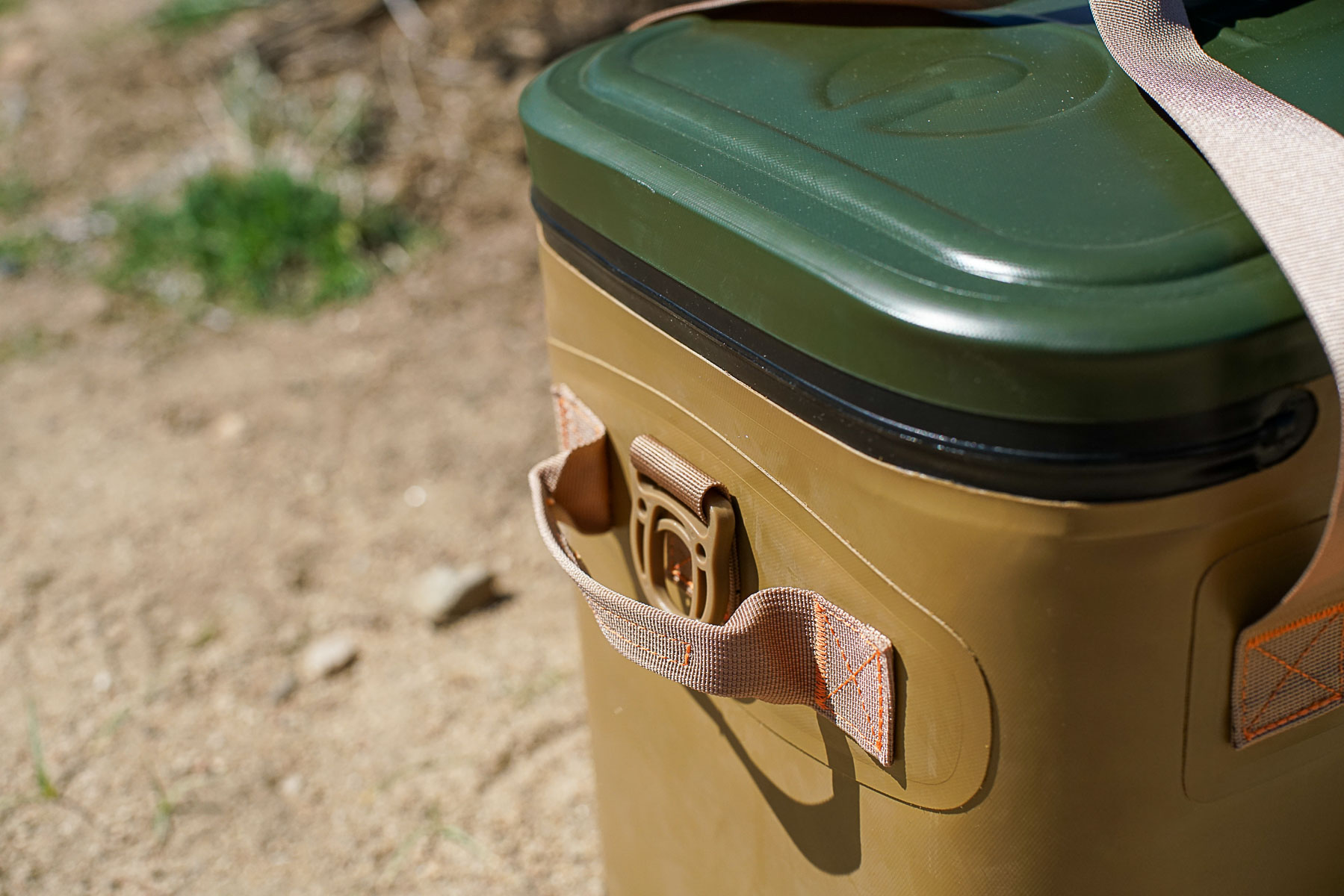
Volume
We would consider the RTIC Soft Pack a personal-size cooler, but with a 30-can capacity, it’s more than enough to handle an all-day adventure. Although its 1.5 inches of insulation slightly reduce the cooler’s internal space, it doesn’t prevent the RTIC from being spacious enough to hold a variety of food and drinks.
Tall enough to fit an upright bottle of wine, the Soft Pack is one of the roomiest soft shell coolers we tested. We played Tetris with a mix of perishable items and canned beverages, finding it easy to arrange a day’s worth of provisions in the Soft Pack.
Depending on how much you need to keep cold, the RTIC could potentially be used for a weekend trip, but its size is best suited for day use.
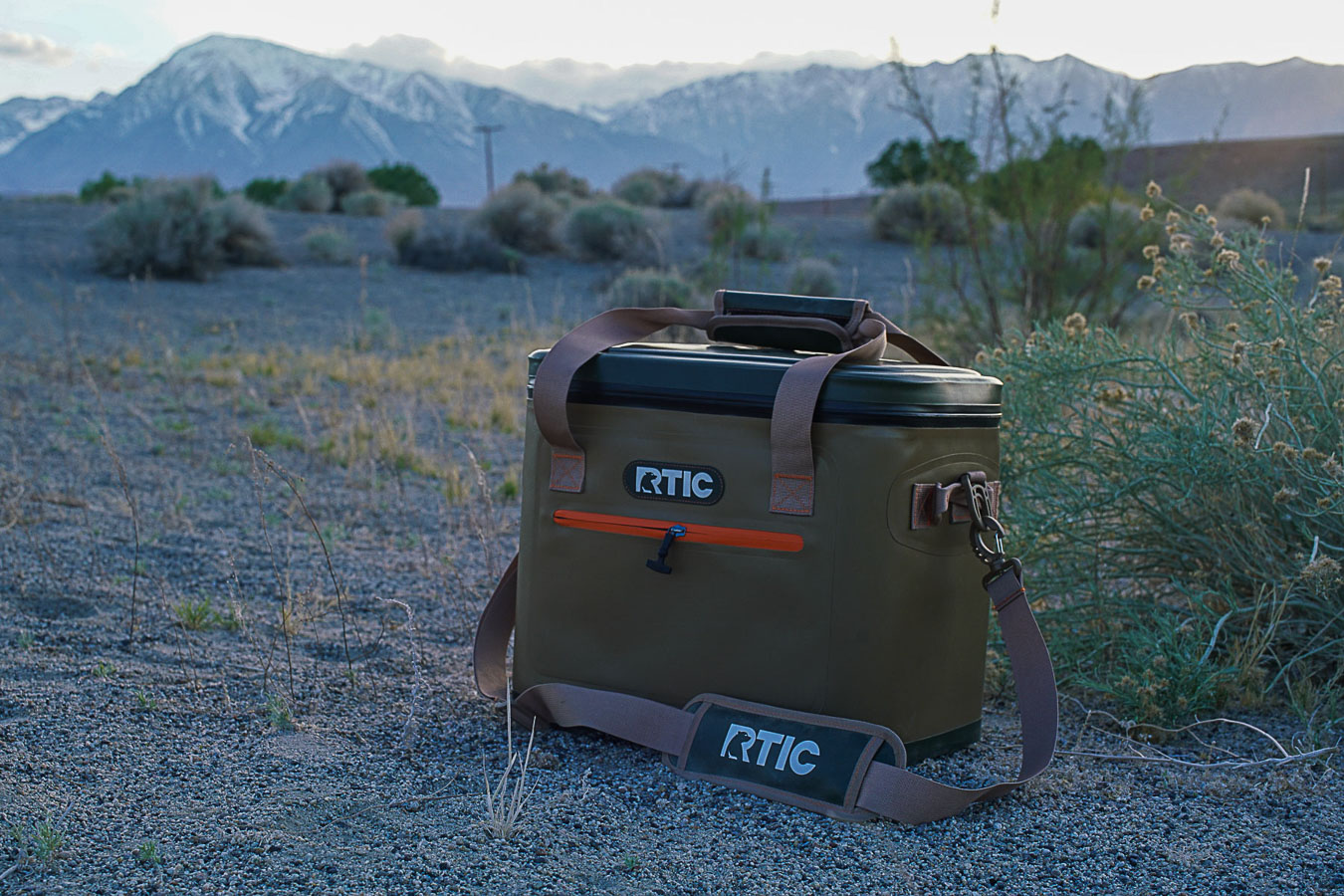
Ergonomics & Portability
Equipped with a shoulder strap and side handles, the Soft Pack is easy to carry wherever you need to go. The cooler features a removable shoulder strap with padding, making it more comfortable to sling over your shoulder for longer distances. The side handles provide a convenient way to carry it by hand and also include a padding layer for added comfort.
The biggest difficulty we faced with the RTIC was the zipper. Because of the waterproof seal, the zipper can be somewhat stiff and tricky to open and close. RTIC offers complimentary lubricant to make it easier to use and to re-waterproof the seal, but it still proved challenging to unzip. The advantage of the tight-sealing zipper is that it keeps water out and prevents leaks. When some of the ice had melted, we knocked the cooler over multiple times, and the zipper did not let any water pass through.
The most distinctive feature of the Soft Pack is that it floats. Unlike any other cooler reviewed, it bobs in the water, making it the perfect choice for fishing or float trips.
Though weighing as the heaviest soft shell cooler tested, the RTIC never felt unwieldy, even when fully loaded, and we appreciated having a couple of padded options to choose from when carrying the cooler. Whether tossed over the shoulder or hauled by hand, the RTIC Soft Pack offers a comfortable carry and distinguishes itself from other comparable coolers with its buoyant water-tightness.
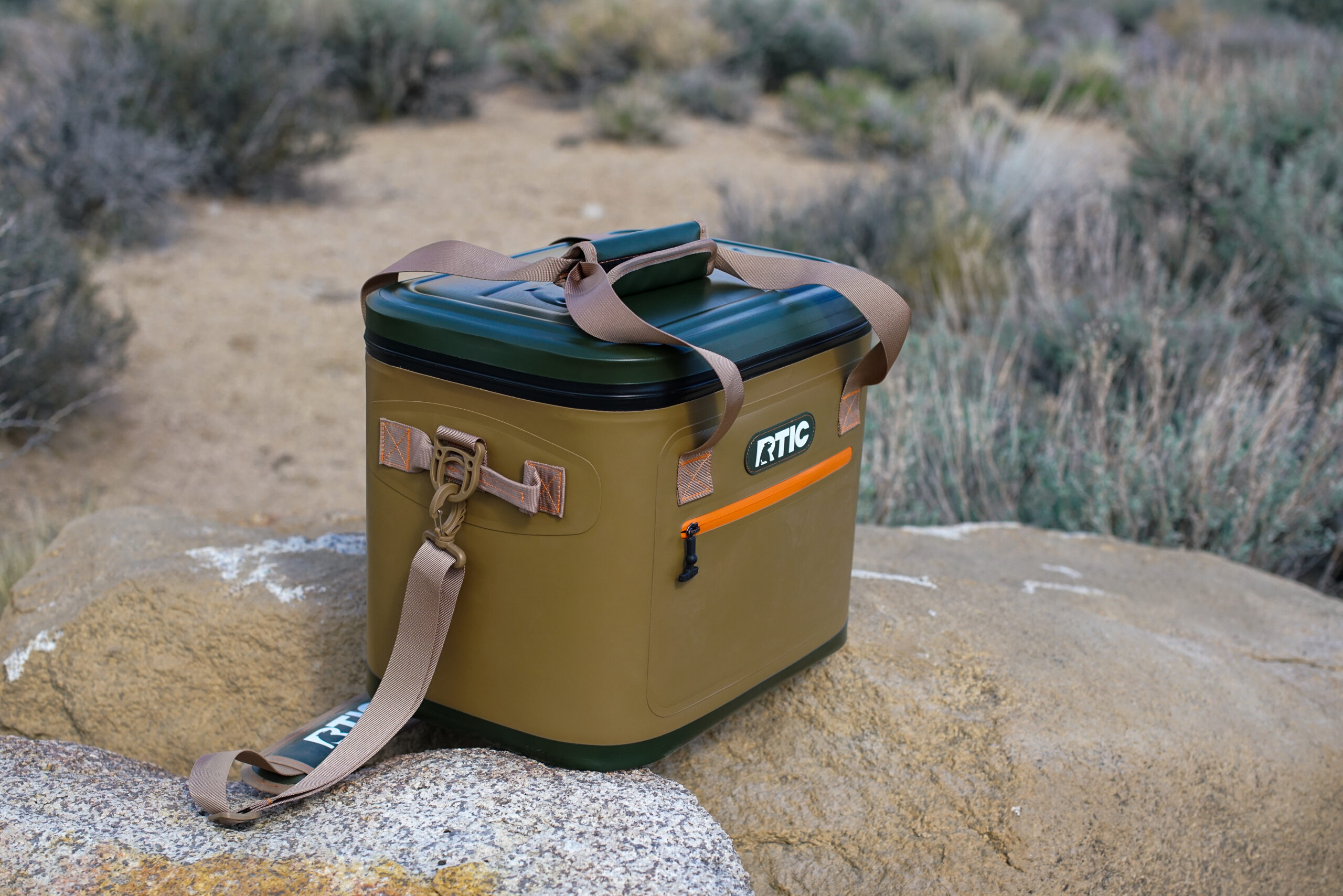
Features
YETI may lead in the range of customization options for coolers, but the RTIC comes in several color choices. We found that light-colored coolers are better for outdoor use, especially when exposed to direct sunlight. Lighter colors do not absorb and retain heat as easily, helping the cooler stay colder longer. The RTIC is mainly available in darker colors, which are less ideal for days on the water when it’s hard to avoid direct sunlight.
The Soft Pack is available in several sizes: 12, 20, 30, and 40 cans. This range of options makes it easy to find a cooler that fits your cold storage needs.
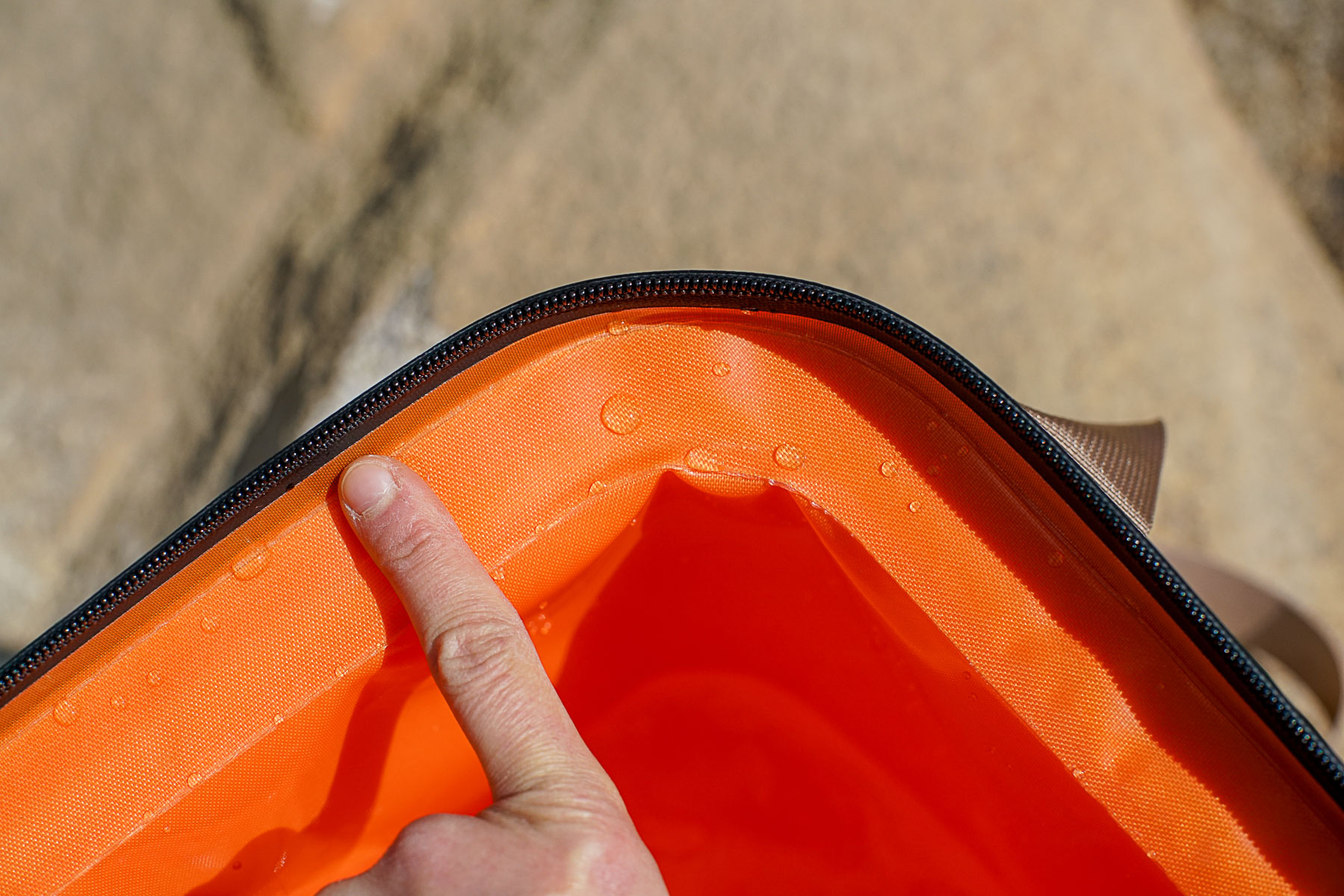
Should You Buy the RTIC Soft Pack Cooler?
The RTIC Soft Pack is the top choice for anyone heading out on the water. With its ability to float, waterproof shell, and secure sealing zipper, the Soft Pack is a cooler specially designed to handle getting wet.
Fellow users’ issues with the welded seams give us some pause, but overall, the RTIC is built with high-quality materials that are capable of enduring rougher outdoor conditions. It’s a cooler we feel confident taking into more rugged environments because of its sturdy construction.
Because of its lower volume and shorter insulating window, the Soft Pack isn’t ideal for multi-day trips. It might be suitable for a weekend outing depending on how much perishable stuff you need to store, but the RTIC is better for day trips. It provides plenty of room for everything you and a friend might need for a full day out.
Thanks to its reasonable price, the RTIC Soft Pack offers great value as a soft shell cooler that’s sturdy enough for various environments and can handle being tossed in the river. The RTIC is designed to withstand even your most adventurous day trips.
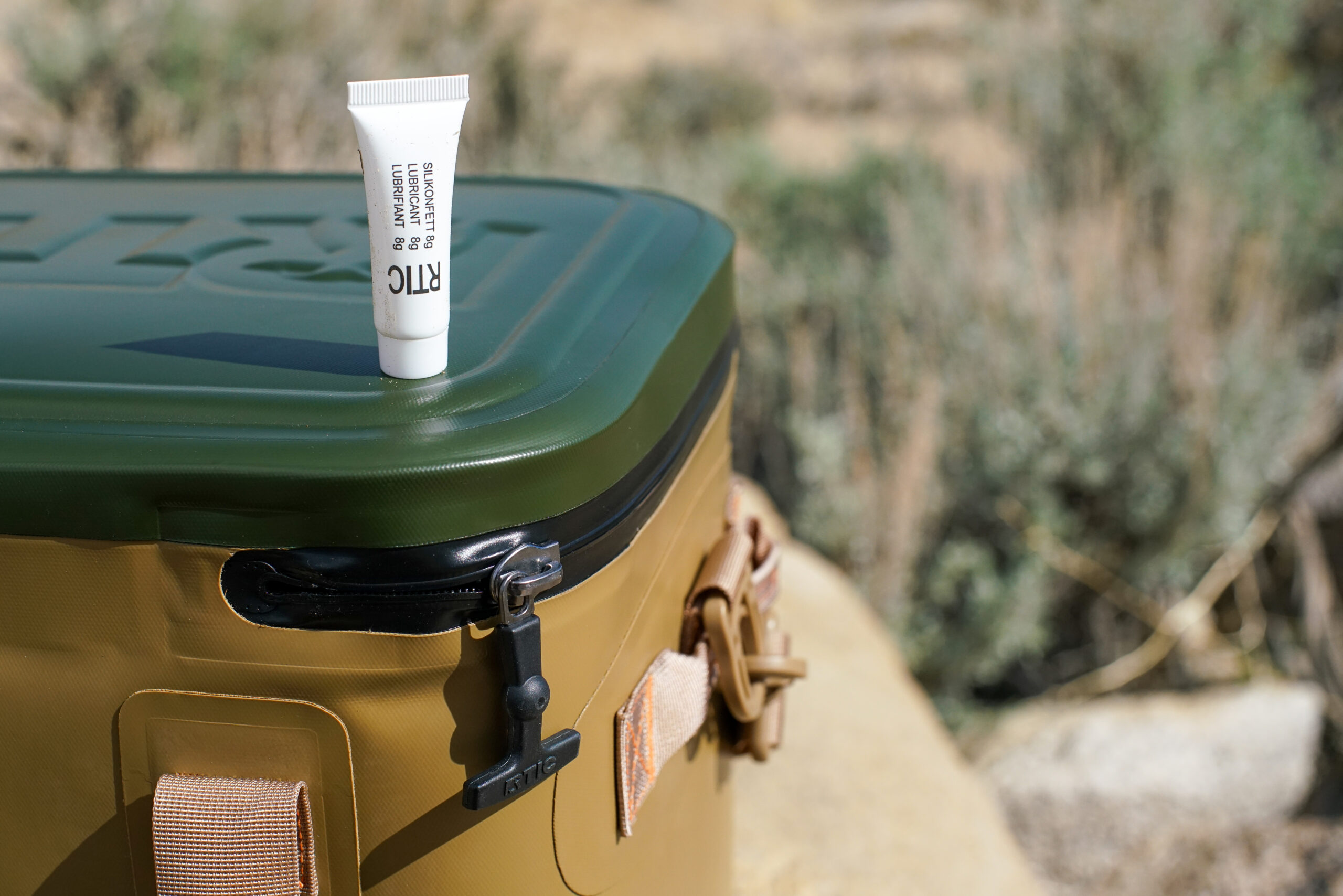
What Other Coolers Should You Consider?
For a full list of recommendations, check out our guide to the best coolers.
YETI Hopper Flip 12 Review: Slightly lower in volume than the Soft Pack, the YETI Hopper Flip 12 is another soft-shell cooler built for durability. It doesn’t float, but the Hopper is waterproof and has a tight-sealing zipper similar to that of the RTIC. While it may not perform as well on water as the RTIC, it’s well-suited for water-side use, offering several days of ice retention and enough space for day trips.
Hydro Flask Carry Out 20L Review: Among the soft shell coolers we tested, this Hydro Flask model has the smallest impact on your wallet. Featuring sloping rounded edges and available in several stylish colors, the Carry Out is a visually appealing choice. However, the Hydro Flask offers more than just looks at a low cost. Its large capacity is several quarts greater than the RTIC’s, providing even more space for your next picnic.
REI Cool Trail Split Pack Review: Resembling a backpack, the REI Cool Trail features a divided design, with the bottom half functioning as a cooler and the top providing rucksack-style storage for all your other needs. Perfect for day hikes, the Split Pack offers comfortable carrying, even over longer distances, and its personal-sized cooler insert has enough space for a day’s worth of cold storage.
